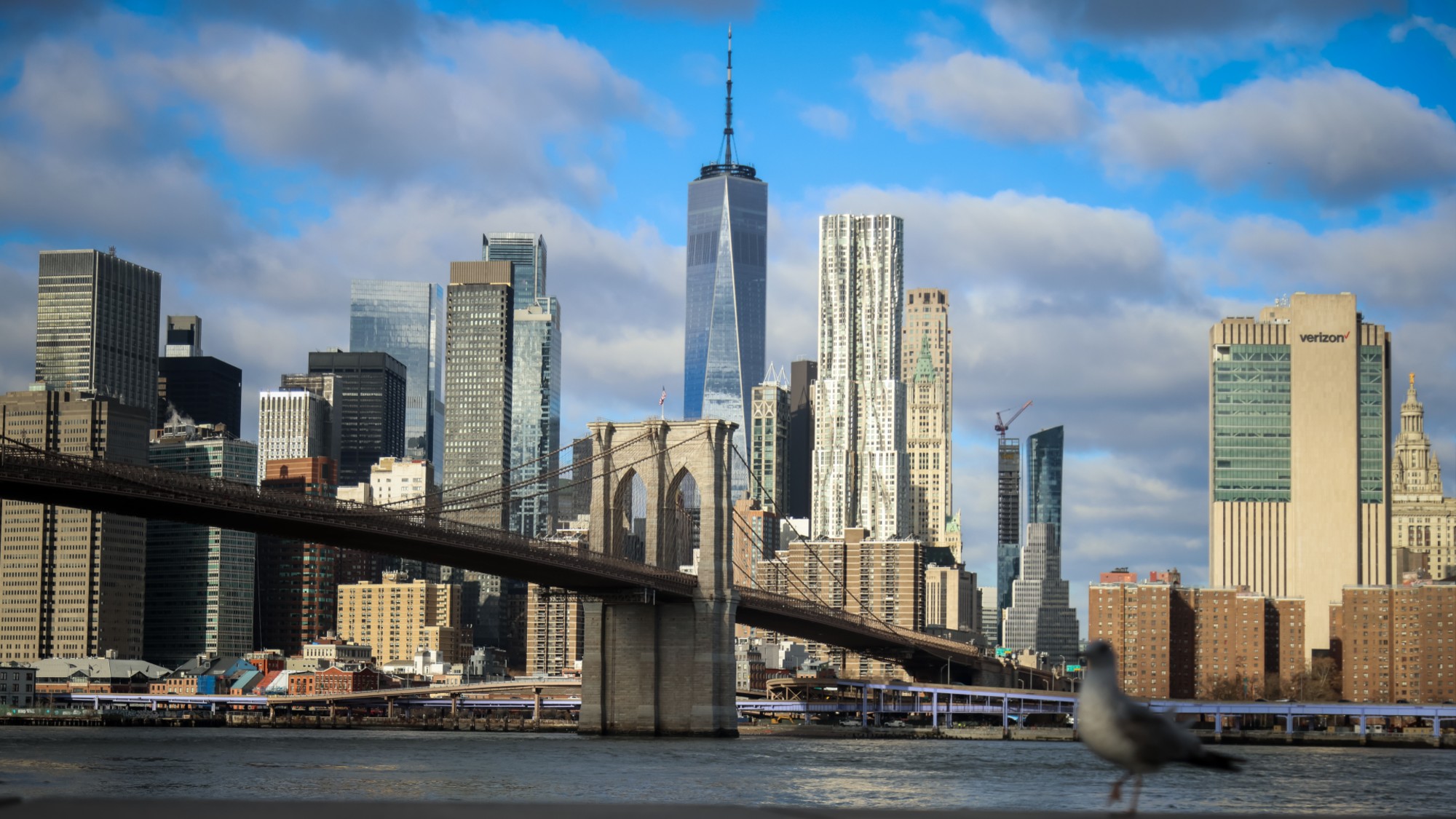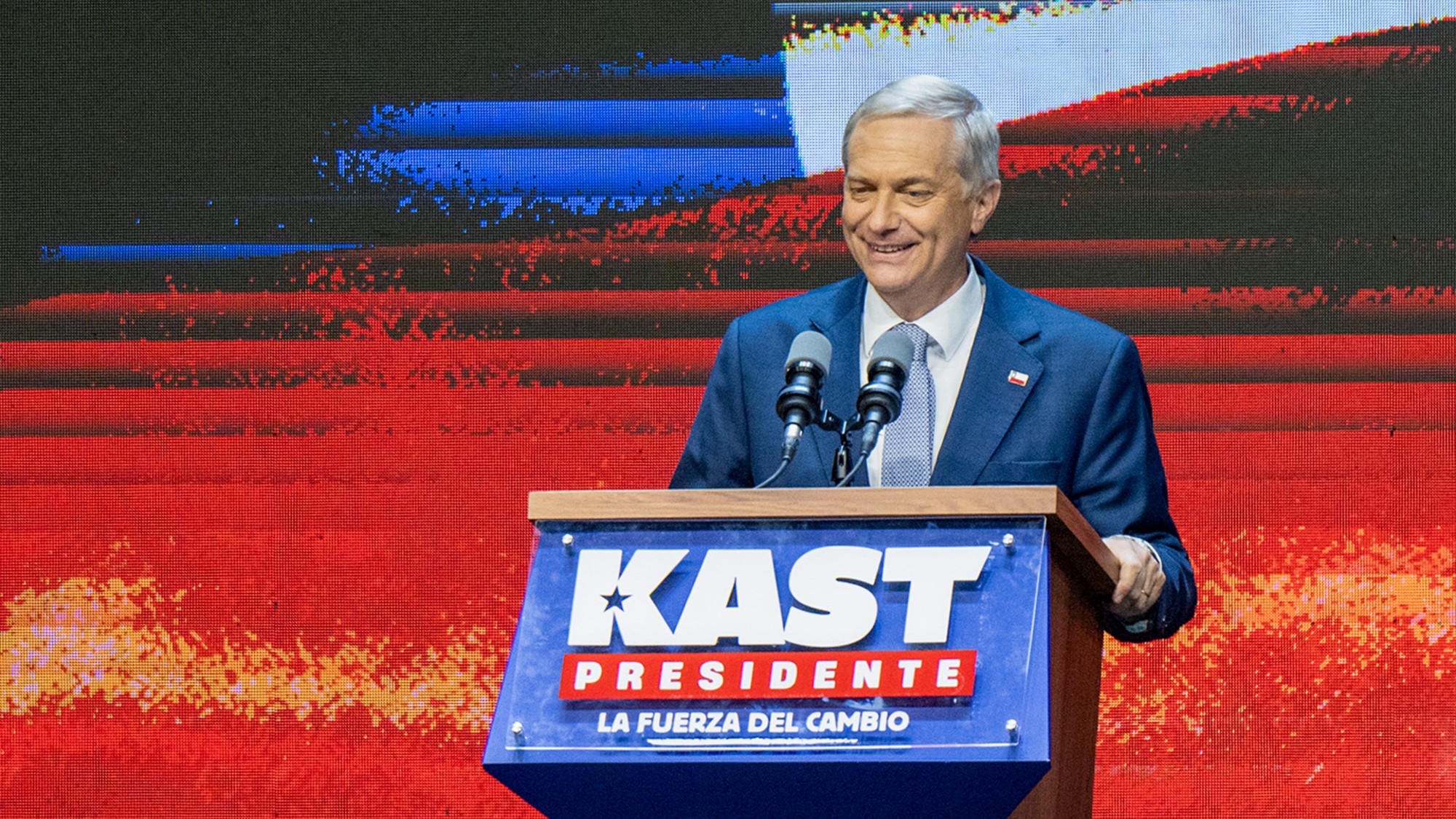Five big problems with the UK’s childcare system
Childcare costs under the spotlight in parliament today as parents forced to choose ‘between child and career’

A free daily email with the biggest news stories of the day – and the best features from TheWeek.com
You are now subscribed
Your newsletter sign-up was successful
The UK childcare system is leaving working parents financially crippled, with a third of families paying more on childcare services than on their rent or mortgage, according to a major new survey.
The poll of more than 20,000 working parents was published by parenting website Mumsnet ahead of a debate in parliament later today, triggered by a petition calling for an independent review of childcare funding.
Labour MP Catherine McKinnell, who will be leading the debate as chair of the Petitions Committee, has said she wants to see a clear new vision that “ensures that parents are not left having to choose between their child and their career due to lack of affordable childcare”.
The Week
Escape your echo chamber. Get the facts behind the news, plus analysis from multiple perspectives.

Sign up for The Week's Free Newsletters
From our morning news briefing to a weekly Good News Newsletter, get the best of The Week delivered directly to your inbox.
From our morning news briefing to a weekly Good News Newsletter, get the best of The Week delivered directly to your inbox.
Costs outweighing salaries
The cost of a one-year-old’s nursery provision increased four times faster than wages in England between 2008 and 2016, while in London it grew seven times faster, according to research by the Trades Union Congress (TUC).
“The UK has the third most expensive childcare system in the world, behind only Slovakia and Switzerland,” said The Guardian. The newspaper pointed out that “people who were struggling the most were on the lowest incomes, on universal credit, were single parents, had disabilities or had a black ethnic background”.
Indeed, the survey published today, which was produced by more than a dozen organisations, including Mumsnet, Grazia and the TUC, found that 97% of respondents thought childcare was too expensive.
A free daily email with the biggest news stories of the day – and the best features from TheWeek.com
Forcing women out of jobs
Two thirds of women in the survey who were in paid employment when they became pregnant had reduced their working hours since becoming a parent.
The mathematics of childcare is “horrifying”, wrote journalist Nell Frizzell in Vogue. “Women with paid employment are hacksawed on all sides by this system; either choosing to work less than they want to in order to try and keep costs low, leaving work completely until their child is at school, or having to hand over a huge proportion of their income just for the privilege of staying employed.”
The average cost of a full-time nursery place for two young children in the UK is £526 a week, “not far off the median salary of £585 a week”, explained MoneyWeek. And this cost “will look strikingly low to many parents in London and the south of England”, it added.
The magazine noted that a paper published last year by the Institute for Fiscal Studies found full-time free childcare would be a crucial factor in helping women remain in the labour market.
Poorer families suffering
The government ruled out an independent review of childcare before the debate had even begun, saying it had spent more than £3.5bn in each of the past three years on early education entitlements. It offers tax-free childcare for children up to 11 years old, while parents on a low income may be eligible for additional help. Children are also entitled to 15 hours of free childcare a week for 38 weeks a year – but this only kicks in in the term after they turn three and stops when they start school.
Parents who work at least 16 hours a week may also be eligible for a further 15 free hours a week, but the Sutton Trust has called this a “national scandal”. Analysis by the social mobility charity and the Sylvia Adams Charitable Trust found that this eligibility criteria meant that “children from poor families are ‘locked out’ of state-funded early education at ages three and four because their parents do not earn enough”, reported iNews.
Delayed access to funding
Today’s survey found that 94% of respondents believed subsidised childcare should start from the end of paid maternity leave, rather than at least two years later when children turn three.
Labour’s McKinnell said access to childcare is “crucial” for helping parents return to work. Writing in Grazia, she said: “This has a huge impact on the gender pay gap because, let’s be honest, it is still by and large women who take on most of the responsibility for childcare.”
Megan Jarvie, head of the Coram Family and Childcare charity, wrote in the same magazine that “there is evidence that government could recoup 95% of spend on childcare through additional tax income” by supporting women to enter and progress in the workplace, and “tackling the gender pay gap that opens up after the arrival of children”.
Childcare providers struggling
“Warnings that the early years sector is at risk of collapse have been largely ignored and morale is low,” added The Guardian. Previous research by Nursery World magazine has found that one in ten childcare workers is living in poverty.
The Early Years Alliance explained that not all childcare providers have to offer the 15-hour or 30-hour schemes and places may be limited as “the level of funding they receive from the government is not enough to cover the cost of delivering places”. Providers can therefore charge for non-compulsory extras, such as lunches or trips.
McKinnell argued that funding for the free entitlements hasn’t been maintained in recent years, leaving parents and providers struggling.
“Should the state’s role be restricted to providing the minimum funding needed to cover – or just about cover – basic childcare costs so that parents can return to work?” she asked. “That means stressed-out staff looking after the maximum number of children they’re legally allowed, potentially higher costs for parents, and providers forced to offer the cheapest possible model of care.”
-
 The Week Unwrapped: Do the Freemasons have too much sway in the police force?
The Week Unwrapped: Do the Freemasons have too much sway in the police force?Podcast Plus, what does the growing popularity of prediction markets mean for the future? And why are UK film and TV workers struggling?
-
 Properties of the week: pretty thatched cottages
Properties of the week: pretty thatched cottagesThe Week Recommends Featuring homes in West Sussex, Dorset and Suffolk
-
 The week’s best photos
The week’s best photosIn Pictures An explosive meal, a carnival of joy, and more
-
 Can foster care overhaul stop ‘exodus’ of carers?
Can foster care overhaul stop ‘exodus’ of carers?Today’s Big Question Government announces plans to modernise ‘broken’ system and recruit more carers, but fostering remains unevenly paid and highly stressful
-
 How corrupt is the UK?
How corrupt is the UK?The Explainer Decline in standards ‘risks becoming a defining feature of our political culture’ as Britain falls to lowest ever score on global index
-
 San Francisco tackles affordability problems with free child care
San Francisco tackles affordability problems with free child careThe Explainer The free child care will be offered to thousands of families in the city
-
 The high street: Britain’s next political battleground?
The high street: Britain’s next political battleground?In the Spotlight Mass closure of shops and influx of organised crime are fuelling voter anger, and offer an opening for Reform UK
-
 ‘Maps are the ideal metaphor for our models of what the world might be’
‘Maps are the ideal metaphor for our models of what the world might be’Instant Opinion Opinion, comment and editorials of the day
-
 ‘Kast’s victory is a political and ethical earthquake’
‘Kast’s victory is a political and ethical earthquake’Instant Opinion Opinion, comment and editorials of the day
-
 ‘City leaders must recognize its residents as part of its lifeblood’
‘City leaders must recognize its residents as part of its lifeblood’Instant Opinion Opinion, comment and editorials of the day
-
 Is a Reform-Tory pact becoming more likely?
Is a Reform-Tory pact becoming more likely?Today’s Big Question Nigel Farage’s party is ahead in the polls but still falls well short of a Commons majority, while Conservatives are still losing MPs to Reform